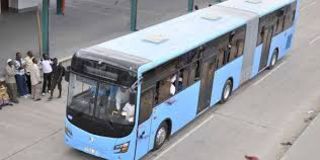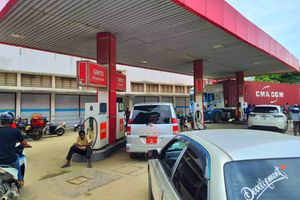Interim Dart phase to end later this year

What you need to know:
- The regulator’s disclosure that it is preparing ground work for closing the interim phase before starting the first phase comes in the wake of ongoing complaints about poor DART services run by Usafiri Dar es Salaam Transit Company (Udart).
Dar es Salaam. An interim phase for operation of Dar es Salaam rapid transit (Dart) will come to an end later this year, according to Dart Agency.
The regulator’s disclosure that it is preparing ground work for closing the interim phase before starting the first phase comes in the wake of ongoing complaints about poor DART services run by Usafiri Dar es Salaam Transit Company (Udart).
Speaking to The Citizen on Wednesday, the Dart public relations manager, Dr William Gatambi disclosed that the tendering process for getting a new service provider for the first Dart phase was in the final stage.
“We are finalising the final procedures to pick another operator. At the end of the current interim phase, which is before January, there will be two operators, including the current one,” said Dr Gatambi.
According to him, the government decided in May 2016 to appoint an interim operator, Udart, in order to protect Dart infrastructure.
The decision to bring on board another service provider was also clarified by Prime Minister Kassim Majaliwa recently when answering supplementary questions from legislators.
The lawmakers raised complaints over poor Dart services, which include overcrowding and transport uncertainty during the rainy season.
The prime minister said the government was optimistic that the Dart services would improve after the entry of the new service provider.
Before appointment of Udart, the regulator was complaining of vandalism of Bus Rapid Transit (BRT) infrastructure, including equipment to support bus stands, stand roofs and other iron fittings.
Dart Agency serves both as the regulator and owner of the BRT infrastructure.
Last May, Dart announced an international tender for procurement of the second operator of rapid bus transit.
The second investor, who will join Udart, which operates on BRT routes from Mbezi and Kimara to Kivukoni, Gerezani and Morocco is expected deploy at least 165 buses with a view to increasing efficiency and enable Dart to strengthen feeder routers, according to Dart Agency.
Responding to The Citizen questions, the head of communications for Udart, Mr Deus Mugaywa said that they have no objection for the entry of the service provide, but urged the authorities to recognize them for playing a crucial role during the interim period despite a myriad changes.
According to Mr Mugaywa, Udart currently has 140 buses including 39 trunk buses and 101 short buses.
“We are still waiting for approval of 70 long buses, which are still at the Port of Dart es Salaam,” he said.
According to this week’s Dart report, the number of passengers ranges between 150,000 and 200,000 per day.
The regulator says they need at least 305 buses to meet the demand, which is projected to rise when the new infrastructure is built.
The African Development Bank (AfDB) is supporting the second phase of BRT, which involves construction of new routes from the city centre to Mbagala to the tune of $160 million.
Already the AfDB has granted $141 million and the government will cover the remaining money, which will include phase two of the project.
The third phase of BRT infrastructure will cover Nyerere road from the city centre to Pugu, while the fourth phase will cover the route to Bagamoyo via Tegeta, according to the 2017 Dart report.
The report also says there were plans to extend feeder routes to Kawe, Mwenge, University of Dar es Salaam, Sinza and Mabibo.
The construction of BRT infrastructure started in 2012 during the fourth phase government led by retired President Jakaya Kikwete whereby Tanzania was set to be a model of BRT project in the sub-Saharan Africa.




